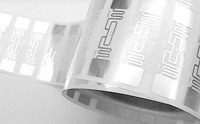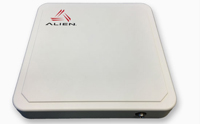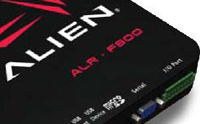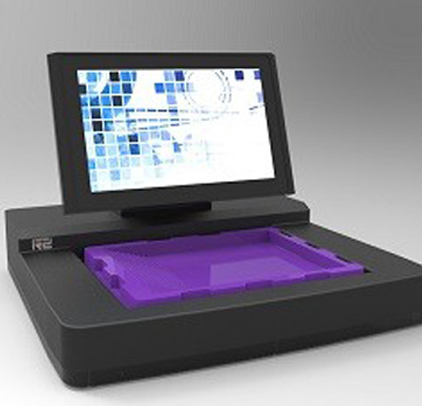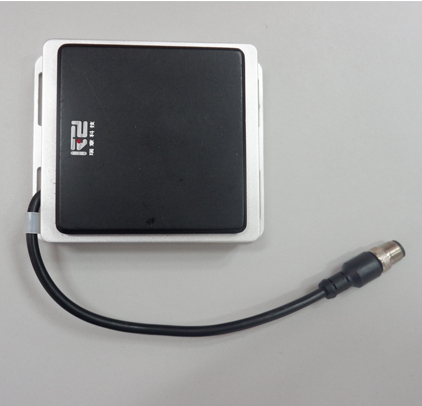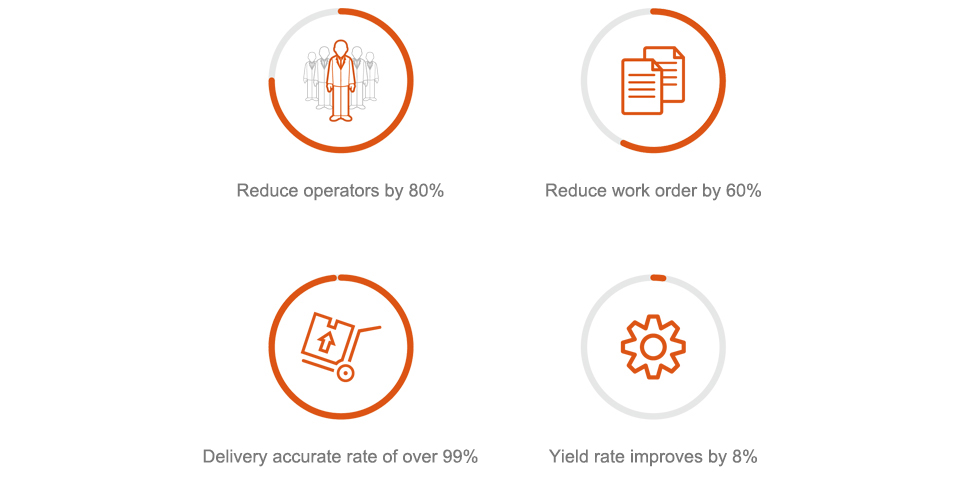Solution
Solution function
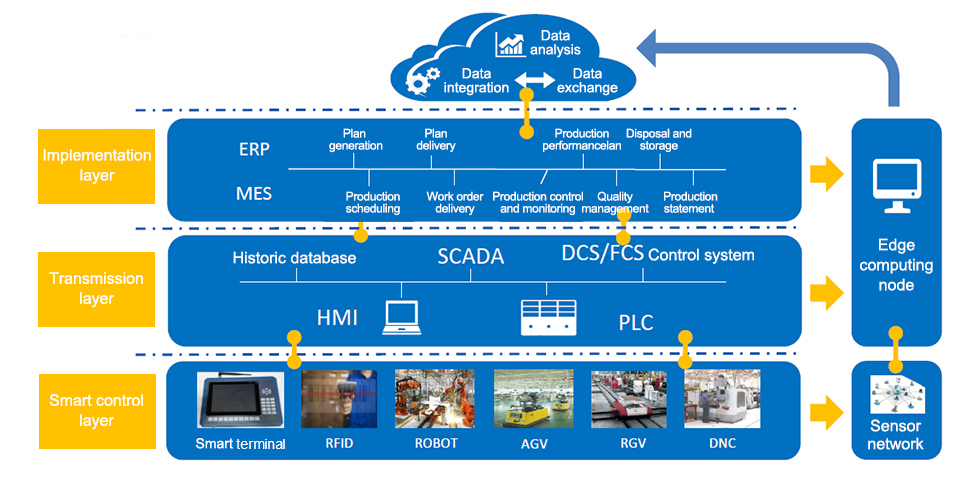
The main functions includesmart control layer, transmission layer and implementation layer.
- The smart control layer: smart terminal, RFID, robotic manipulator, AGV, RGV, DNC, etc.
- Transmission layer: transmitting control instructions and information data via HMI and PLC protocol.
- Implementation layer: ERP, MES, WMS application.
Solution advantage
Overall automation of production:
Th production process is automatic, transparent, visualized and optimized. Meanwhile, the product test, quality test and analysis and production logistics are integrated with the closed-loop production process. Information sharing, on-time delivery and coordinated work are achieved among multiple workshops. Command and coordination are conducted for the whole factory to find and solve emergencies.
Establish powerful information chain:
By combining RFID and current manufacturing information systems such as MES, ERP, CRM and WMS, a more powerful information chain can be established. Accurate data can be timely delivered in accurate time to improve productivity, asset usage rate and higher-level quality control and various online measurement. Normally, after accessing data from RFID, middleware will process the data and feed them to manufacturing information system.
Conformity of manufacturing implementation, quality control and standard:
Continuously-updated real-time data flow will be provided to support lean manufacturing and 6 Sigma quality control. Complementing the manufacturing implementation system, the provided information can ensure right use of labor, machines, tools and components for paper-free production and reduction in shut-down period. Plus, when the materials, parts and assembly parts pass the production line, the production process can be controlled, modified and even recombined at real time to ensure reliability and quality.
Follow-up and traceability:
RFID can complement with the current manufacturing execution system. For the majority of components, the manufacturing execution system can collect such information as product tags, time stamps, physical property, order number and batch number of each process. The information can be transformed to RFID code and delivered to the supply chain to help the manufacturers follow up and trace the product historical information.
Factory asset management:
RFID on asset or equipment provides such information as the place, availability status, performance feature and storage volume. Based on this information, the production, maintenance, labor adjustment, etc. can help increase asset value, optimize asset performance and maximize asset utilization. Thanks to the reduction in shut-down period and more effective maintenance (planned and unplanned), the very important manufacturing performance parameters can be influenced positively.
Visualized storage volume:
Since contract manufacturing becomes ever more important, it is essential to synchronize supply chain and visualize the manufacturing process. RFID adapts to the application system of various scales (local or be extended to the whole factory). RFID can visualize the feedstock, WIP, packaging, transportation, storage and the next destination in the supply chain in the whole process. All of these are related to information management.







